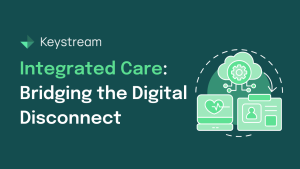23.08.2023
Challenges of Delivering EPR Training in the NHS
In the vast, interconnected world of the NHS, the implementation of a new Electronic Patient Record (EPR) system isn’t just about technology. It’s also about ensuring thousands of professionals are equipped to utilise that technology to its fullest potential. Training managers sit at the helm of this mammoth task. Here are some of the pivotal challenges they face:
- Scale of Training: Implementing EPRs in the NHS means training anywhere between 5,000 to 20,000 staff in a very short 6–12-week window. The sheer scale demands meticulous planning, coordination, and a training infrastructure that can support such large numbers.
- Diversity of Roles: From administrative staff to consultants, the range of roles within the NHS is vast. Each role has distinct training needs, requiring a blend of general and role-specific training modules. Depending on just how role specific the organisation wants the training to be, you are looking at anywhere between 25 to 60+ courses.
- Tight Timeframes: Often, training managers face time constraints, making it challenging to ensure comprehensive training for every staff member. Early onboarding of the training workstream is essential in enabling delivery of an effective training and support porgramme.
- Logistics and Resource Allocation: Organising venues, ensuring access to necessary tech, and coordinating schedules can be a logistical nightmare. It’s not just about the ‘what’ of training but also the ‘how’ and ‘where.’
- Ensuring Robust Learning Management Systems (LMS): An efficient LMS is imperative. It must be SCORM compliant, host a wide range of eLearning modules, and act as a repository for crucial training materials. Moreover, its interface needs to be intuitive, allowing staff easy navigation and logical course registration.
- Monitoring and Reporting: Real-time reporting on attendance, pass rates, and Did Not Attends (DNA’s) is critical. Training managers need to swiftly react to non-attendance and reschedule, ensuring no staff member is left behind.
- Post-training Support: The end of a training session isn’t the end of the training manager’s responsibility. Ensuring ongoing support, especially during the critical ‘go-live’ phase, is vital. Floorwalkers, SMEs, and Super/Champion users play an indispensable role here.
- Adapting to Feedback: Implementing real-time feedback mechanisms and then pivoting based on that feedback is another challenge. Continuous improvement should be the main driver for the training workstream.
- Change Management: Resistance to change is a natural human instinct. Training managers must address this head-on, ensuring that their training sessions instil confidence and illuminate the ‘why’ behind the EPR system, not just the ‘how.’ The Change team should not be the only workstream addressing resistance to change. It must come from all areas of the programme and training plays a major role in helping implement change practices.
In the face of these challenges, the rewards are undeniable. A well-trained organisation means very high adoption rates and efficient EPR utilisation, leading to enhanced patient care and streamlined operations. As with any significant change, the path is fraught with challenges, but with meticulous planning, unwavering dedication, and a little innovation, success is very much achievable.









